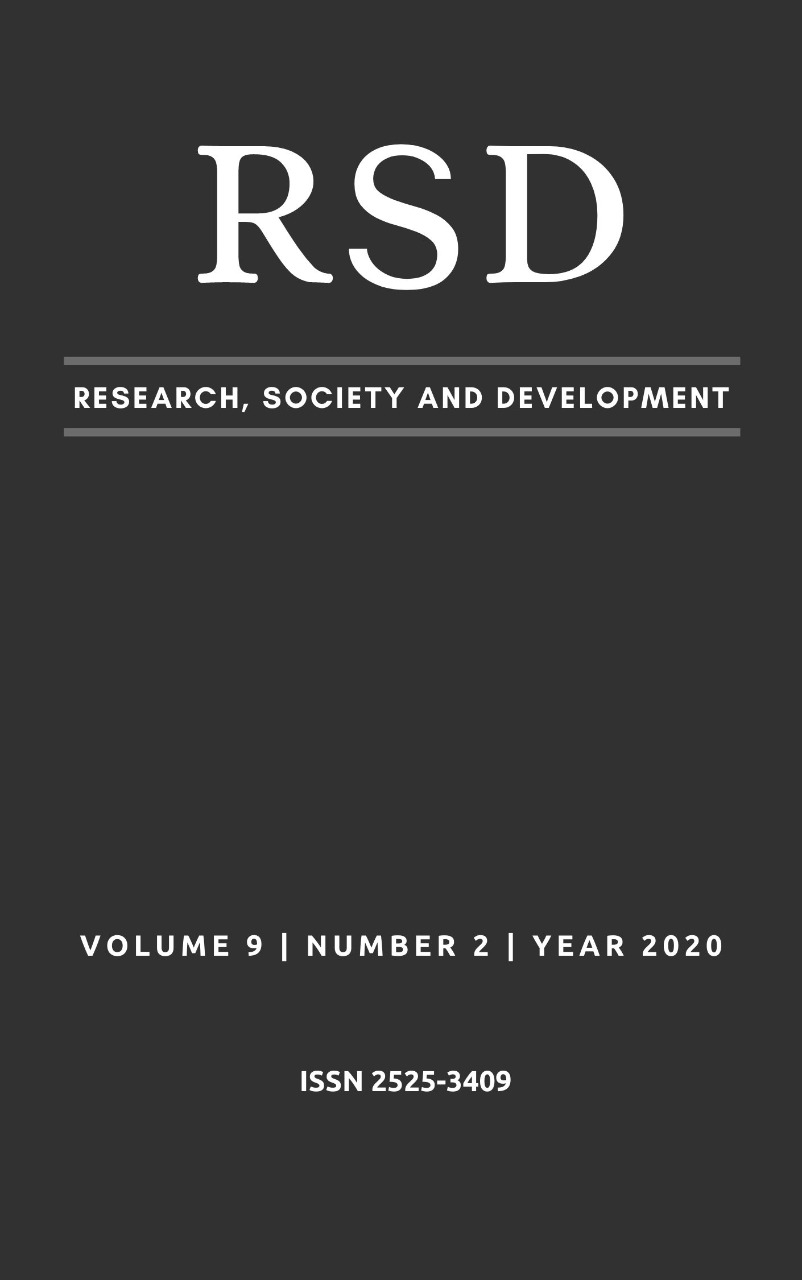As concepções de integração curricular da EEEP Lysia Pimentel Gomes Sampaio Sales
DOI:
https://doi.org/10.33448/rsd-v9i2.1958Palavras-chave:
Educação Profissional, Formação integrada, EmancipaçãoResumo
O presente estudo visa compreender o projeto de formação oferecido aos alunos da Escola Estadual de Educação Profissional (EEEP) Professora Lysia Pimentel Gomes Sampaio Sales, situada em Sobral no Ceará. Para tanto, analisamos, com base no método do materialismo dialético de natureza qualitativa, o Projeto Político Pedagógico da unidade de ensino, tendo por referência os conceitos de trabalho como princípio educativo, ciências, tecnologia e cultura (os eixos estruturantes do ensino médio) apresentados pelas Diretrizes Curriculares Gerais para Educação Básica. Constatamos que a referida escola é um espaço privilegiado para se estudar as disputar travadas entorno da formação do trabalhador, pois encontramos, no documento, concepções que tanto privilegiam a formação integral do aluno, como elementos que vão de encontro a tal formação e comprometem os interesses da classe trabalhadora.
Referências
Andre, M.E.D.A. (1984). Estudo de Caso: seu potencial na educação. Cad. Pesq,49,51-54.
Brasil. (1996). Lei n.9.394, de 20 de dezembro de 1996. Diretrizes e Bases da Educação Nacional. Brasília. Disponível em:http://www.planalto.gov.br/ccivil_03/LEIS/L9394.htm. Acesso: 23 de Julho de 2019.
Brasil. (2013). Diretrizes Curriculares Nacionais Gerais da Educação. Brasília: MEC, SEB, DICEI.
Cardozo, M.J.P.B. & Arrais Neto, E.A. (2014). O ensino Médio e a Formação do Trabalhador: competências para quem e para quê? In: Sousa, A.A. & Oliveira, E.G. (Orgs). Educação Profissional: Análise Contextualizada. Fortaleza: Edições UFC.
Costa, C. L. (2012). A integração do ensino médio à educação profissional técnica no Brasil e os rebatimentos no Estado do Ceará: da aparência à essência. (Dissertação de Mestrado). Universidade Federal do Ceará-UFC, Fortaleza, CE, Brasil.
Escola Estadual de Educação Profissional Lysia Pimentel Gomes Sampaio Sales-EEEP.(2018). Projeto Político Pedagógico-PPP. Ceará.
Mészáros, I. (2008). A educação para além do Capital. (2a.ed). São Paulo: Boitempo.
Minayo, M. C. S. (Org). (2002). Pesquisa Social: Teoria, método e criatividade. Petrópolis: Editora Vozes.
Moura, D. (2012). A organização curricular do Ensino Médio Integrado a partir do eixo estruturante: Trabalho, Ciência, Tecnologia e cultura. Revista Labor, Ceará, 7(1): 1-19.
Secretaria de Educação do Estado do Ceará. (2014). Relatório de Gestão “O pensar e o fazer da educação profissional no Ceará – 2008 a 2014”. Fortaleza.
Sousa, A. A. (2012). Expansão da Educação Profissional no Brasil: Análise dos Institutos Federais de Educação, Ciências e Tecnologia- IFS. In: A. A. Sousa; E. G. de Oliveira; E Arrais & M. Bessa (Orgs). Educação e Formação para o trabalho no Brasil. Fortaleza: Edições UFC.
Wachowicz, L. A. (2001). A Dialética na Pesquisa em Educação. Revista Diálogo Educacional-v.2- n.3- p.171-181.
Downloads
Publicado
Edição
Seção
Licença
Autores que publicam nesta revista concordam com os seguintes termos:
1) Autores mantém os direitos autorais e concedem à revista o direito de primeira publicação, com o trabalho simultaneamente licenciado sob a Licença Creative Commons Attribution que permite o compartilhamento do trabalho com reconhecimento da autoria e publicação inicial nesta revista.
2) Autores têm autorização para assumir contratos adicionais separadamente, para distribuição não-exclusiva da versão do trabalho publicada nesta revista (ex.: publicar em repositório institucional ou como capítulo de livro), com reconhecimento de autoria e publicação inicial nesta revista.
3) Autores têm permissão e são estimulados a publicar e distribuir seu trabalho online (ex.: em repositórios institucionais ou na sua página pessoal) a qualquer ponto antes ou durante o processo editorial, já que isso pode gerar alterações produtivas, bem como aumentar o impacto e a citação do trabalho publicado.


